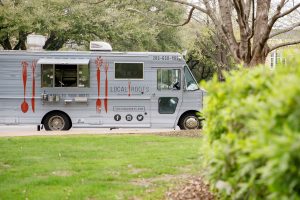The COVID-19 pandemic has altered everyday life and forced numerous businesses to temporarily suspend operations or permanently close.

While many industries have suffered, the hospitality industry has taken a major hit due to social distancing.
Dr. Kimberly Severt, director of UA’s hospitality management program, offered some insight on what the industry is facing and how it will bounce back.
How has the COVID-19 pandemic affected the hospitality industry?
COVID-19 has had a significant impact on the hospitality and tourism industries, and the effects are profound. People aren’t traveling, hotels are closing, conferences are being canceled, restaurants are having to reinvent the way they serve consumers and everyone has taken a substantial financial hit.
According to the state of Alabama’s 2018 Tourism Economic Impact report, more than $954 million of state and local tax revenues were generated by travel and tourism activities. Without those taxes, each household in Alabama would have had to pay $507 in additional taxes to maintain current service levels.
Revenue of hospitality and tourism is the second largest contributor to Alabama gross domestic product, or GDP, behind health care. The negative impact the hospitality and tourism industries are facing will ultimately have a direct impact on Alabama residents.
What are some of the issues facing the hospitality industry?
One of the issues facing the industry is the potential for workers to be infected by guests that are going through the drive-thru or picking up entrees from their favorite restaurants. If one employee is infected and other workers are exposed, a temporary shut down of the business is inevitable. This is something that needs to be monitored.
Another issue is that the hospitality industry by nature is a very labor-intensive industry, resulting in a shortage of workers across all segments of the industry. At the present time, employees are having their hours reduced and many are losing their jobs. Will the labor pool return or will the industry lose workers to other industries? This is a long-term issue.
Many people who work in the industry love it and want to be part of its rebirth. People will be ready to travel, eat out with friends and get back to enjoying life and the hospitality industry is a huge part of that. I also feel like this is a great time to major in hospitality management because you will have an abundance of opportunities upon graduation.
How is the industry adapting to social distancing during this time?
The industry is being very creative. Restaurants are using food trucks to deliver meals to neighborhoods and depending on take-out and delivery modes for survival. In some of the hardest hit cities, convention centers are being utilized as hospitals.
Small businesses in the industry have taken a hit and some have closed during this time. How are large national chains handling this situation and are they also at risk of closing?
No business, small or large, is immune to the effects of COVID-19. The profit margins in the hospitality industry are not that large to begin with, so large profits during this crisis aren’t occurring.
At best, businesses are staying afloat by being creative and adapting their service model. The longer this pandemic lasts, the less likely small businesses will survive. That’s why community support is so important.
How long will it take for the hospitality industry to rebound once social distancing orders are lifted?
The hospitality industry is a vital part of society. The industry is resilient and will eventually rebound. There are many dedicated and innovative people in the hospitality industry who are determined to rebound from this and, together, we will.
This industry plays an important role in people’s everyday lives, whether that’s picking up your favorite coffee from Starbucks on the way to work, celebrating a birthday with friends and family at a favorite restaurant, taking the kids to Disney World or picking up dinner on your way home. People eat, drink, sleep and travel, and that’s what the hospitality industry supports.
